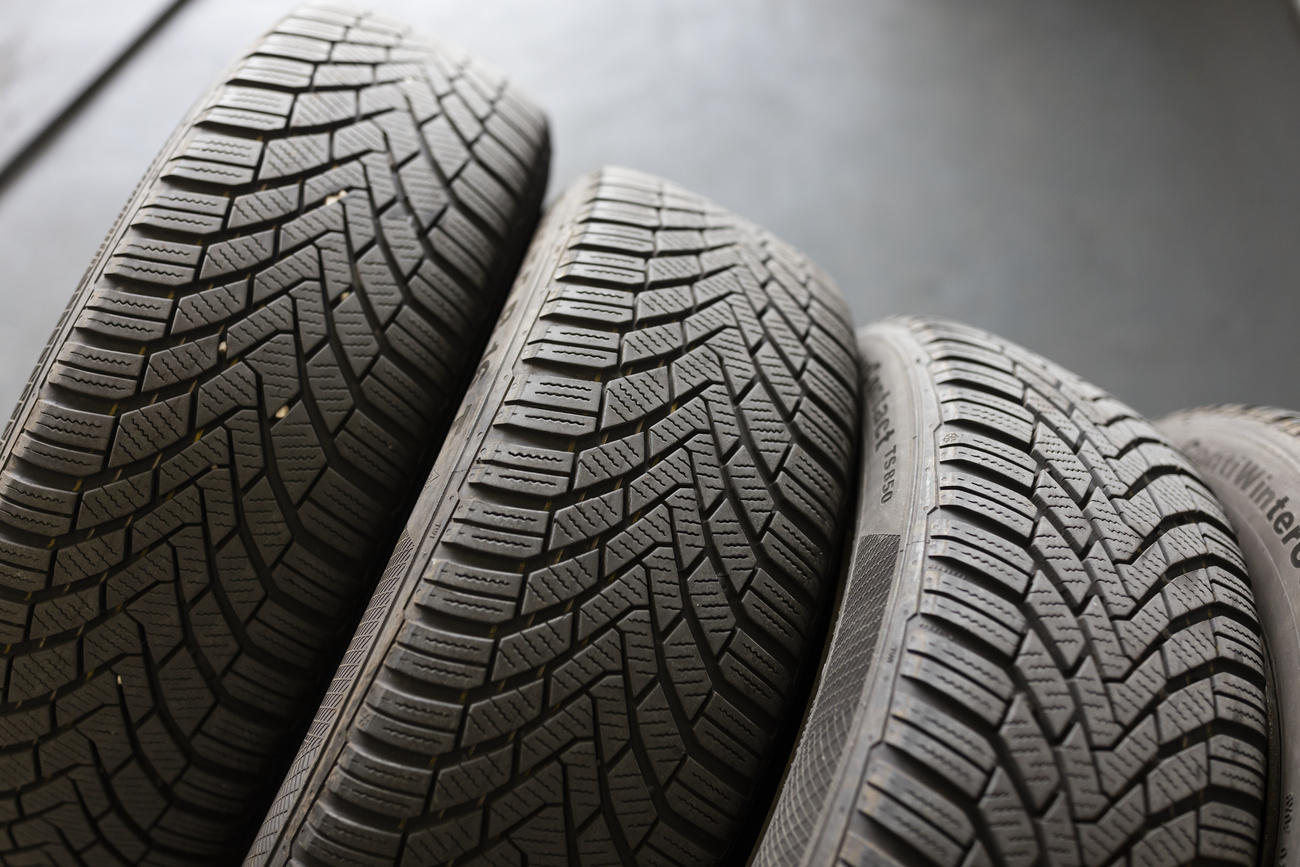
Researchers warn of ‘huge’ rubber pollution problem in Switzerland

More micro-rubber - released from vehicle tyre abrasion on roads - is released into the environment than micro-plastics in Switzerland, according to a study.
Researchers from the Federal Laboratories for Materials Testing and Research (Empa) estimate that between 1988 and 2018, around 200,000 tons of rubber particles was released on Swiss roads, it was announced on WednesdayExternal link.
The vast majority (97%) comes from car and truck tyres that are worn down on roads while a small amount can be attributed to the removal of artificial turf. Around three-quarters of the rubber particles remains within an area 5 metres either side of the road. However, 20% is broken down into smaller particles and is washed into streams, rivers and lakes, and 5% infiltrates the soil. Another study showed that half of the polymer waste found in Lake Geneva comes from micro-rubber.
Anyone living or passing close to roads are at risk of inhaling fine rubber particles but the amount found in inhaled fine dust in locations close to traffic is low, according to Empa.
Since 2000, the Swiss authorities have invested in road wastewater treatment plants to try to deal with the problem.
But the biggest problem is the sheer quantity of rubber particles produced. Of the polymer-based micro-particles released into the environment micro-rubber accounts for 93% compared to just 7% for micro-plastics.
“The amount of micro-rubber in the environment is huge and therefore highly relevant,” says Bernd Nowack of Empa.

In compliance with the JTI standards
More: SWI swissinfo.ch certified by the Journalism Trust Initiative
















![The four-metre-long painting "Sonntag der Bergbauern" [Sunday of the Mountain Farmers, 1923-24/26] had to be removed by a crane from the German Chancellery in Berlin for the exhibition in Bern.](https://www.swissinfo.ch/content/wp-content/uploads/sites/13/2025/12/01_Pressebild_KirchnerxKirchner.jpg?ver=cb688ed5)














You can find an overview of ongoing debates with our journalists here . Please join us!
If you want to start a conversation about a topic raised in this article or want to report factual errors, email us at english@swissinfo.ch.